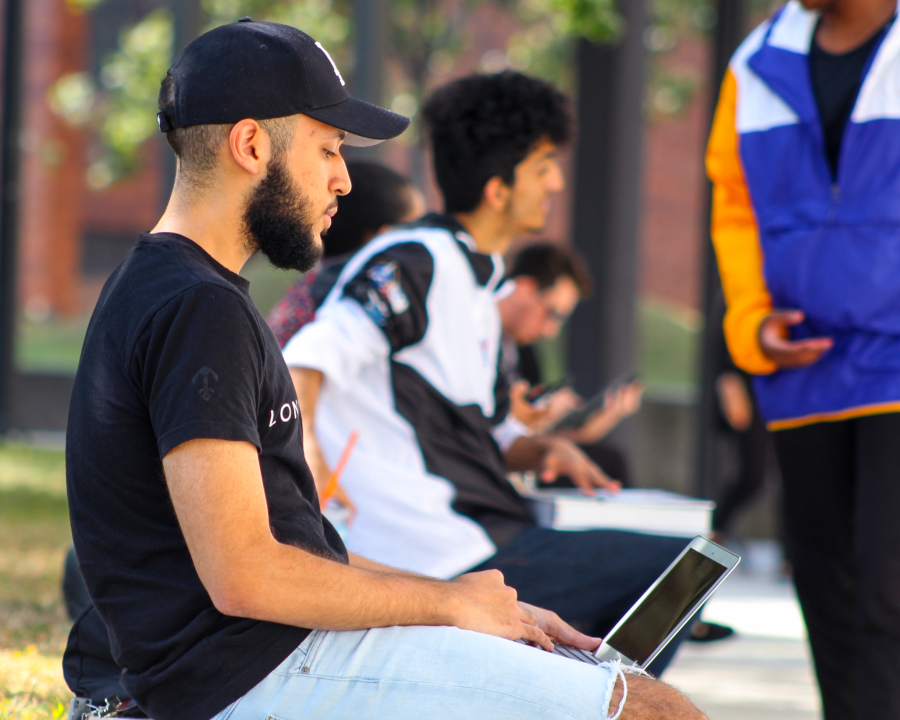With COVID-19 unexpectedly changing our lives this past March, schools of all grades had to quickly adjust their schedules and curriculum to fit an online platform. Everything—from lectures, to exams, to assignments—had to be transmitted to a virtual format in order to continue the school year. Arguably, last semester seemed rather chaotic and unorganized as we went from classes being in person to online with little to no warning. Professors struggled to make these adjustments and had to learn the hard way of what worked and what unfortunately did not. However, staff were able to reflect on these details over this past summer and were able to work with many different resources in order to change and revise their curriculum in hopes of making this fall semester go by more smoothly.
As we near the end of this month, students have a lot to say about “Zoom University,” as it has been coined online. It seems that this virtual format has done a mix of good and bad for UMass Boston’s students’ stress levels. The largest negative students have encountered is the lack of communication with staff as we are no longer able to have face to face interactions for quick answers and responses. Even with video chatting services such as Zoom, sometimes it is more difficult to make these virtual meetings occur within a particular time frame that a student may have. This has resulted in some students feeling more alone in their academic endeavors and feeling as if they have to overcompensate with their own research and time in order to better understand concepts, with less help from their professors. This digital barrier has burdened a lot of students, making them work almost twice as hard to learn the material in the best way that they can. Freshman Brianna Young has especially felt this struggle as she adjusts to college for the first time. When asked about how online learning has impacted her academic progress, she expressed “I have been stressing out a little bit since everything is online. We don’t have the best access to professors and tutors to break down and explain problems.” This experience of course has not matched her previous expectations of what college would be like for her; however, she understands it is due to the pandemic climate that we currently are in.
Furthermore, one junior student who requested they remain anonymous explained how some classes have been difficult due to technological issues, “personally for me, online curriculum hasn’t helped my academic progress because some professors at [UMass Boston] do not fully understand how to use the technology needed for class.” Some staff seem to lack more thorough training needed to use the software provided to them. Students have also reported some classes randomly being disconnected while on video chat or their exams glitching closed. These types of technical obstacles are hard to predict and have left some students wary of the different software being used. This unreliability has contributed to not only students’ stress levels, but professors’ as well.
However, despite these cons, some students have found the online curriculum to actually be a lot easier to work into their schedules and have provided them more time for other responsibilities such as work. Anthony Johnson, a senior studying Management, reflected on his personal experience of this new curriculum: “Online classes have done a huge benefit for me in the way it has allowed me to focus more on recovering my finances,” he shared, as his family has been struggling financially due to the economic impacts of the pandemic. “[I’m working] full time and going to school full time in order to graduate when I want to, but this wouldn’t be possible if it wasn’t for classes being online.” A lot of students actually share this same sentiment. With money being tight for a lot of individuals, students have picked up extra jobs in order to compensate for the economic loss in the U.S. and also due to the fact that a lot of students have to pay out of pocket for their tuition, just like Johnson. Students’ schedules have changed and have provided more availability for shifts due to the easy access to school online. Students can do work or watch a lecture on their commute to their job or during their lunch break, while before this may not have been possible due to not really being able to get from campus to their workplace in the right amount of time.
In the end, it seems we are all in the same situation of having to learn how to adjust to all of these changes and become comfortable learning online. There are still a lot of issues to work out such as improving communication and possibly training staff more on the technological aspects of their teaching. However, there have also been some positives to classes online such as allowing students more time for other important responsibilities in their life. With constant feedback from students, we will see changes continuously being made to improve online schooling and provide some relief to struggling students. We know that UMass Boston is doing their absolute best to help better this unfamiliar and sometimes stressful situation that our student body is in.

